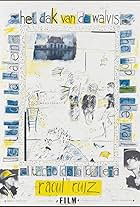Advanced search
- TITLES
- NAMES
- COLLABORATIONS
Search filters
Enter full date
to
or just enter yyyy, or yyyy-mm below
to
to
to
Exclude
Only includes titles with the selected topics
to
In minutes
to
1-12 of 12
- A fascinating and human portrayal of a once-famous fighter pilot and loyal Stalinist named Nadezhda Petrovna. Now a 41-year-old provincial schoolmistress, she has so internalized the military ideas of service and obedience that she cannot adjust to life in peacetime.
- The semi-autobiographical film on director Hou Hsiao-Hsien's childhood and adolescence, when he was growing up in Taiwan, living through the deaths of his father, mother and grandmother.
- A Tibetan man struggles to provide for his family.
- In the 14th-century, a visionary girl is to become an Anchoress, a walled-in recluse, so that she can live in the Virgin's house forever. Over time she awakens to her own sensuality and explores her own female, earth-based spirituality.
- A loving film tribute to Russian filmmaker Larisa Shepitko, who died tragically in a car accident in 1979 at the age of 40. This documentary by her husband, Elem Klimov, includes excerpts from all of Shepitko's films, and her own voice is heard talking about her life and art.
- A parody of anthropology, linguistics, and cultural imperialism. The film follows an unlikely team of linguists into the wilds of an ersatz Patagonia to study the last speakers of a dying language. That language apparently consists of a single word, which therefore means everything.
- Documentary. The tranquil woods of the Loire Valley embrace the La Borde psychiatric clinic, an asylum in the truest sense of the word, where patients find sanctuary and repose. Patients and staff work together in rehearsals and preparations for their annual summer play. This year, they perform the modernist, absurdist classic, "Operette," by Witold Gombrowicz, whose dialogue is more nonsensical than that of the patients themselves.
- Shot in high-definition video using rear-screen process plates from classic Warner Bros. films noirs. A young man (in color) searches for his past through black-and-white scenes from "The Big Sleep," "Mildred Pierce," and "Strangers on a Train."
- A poetic depiction of life and ritual in the south Indian state of Kerala. We see how knowledge is passed down from generation to generation: within the family, through the village economy, and especially from teachers to students. Performance footage shows how song, dance, martial arts, and religion constitute the building blocks of a culture.
- A young performance artist decides to make his own suicide his last work of art. On the longest day of the year, he plans to melt a huge block of ice with his own body heat and die of hypothermia. He calls this protest against the coldness of society "Funeral on Ice." Based on a true story.
- Performed exclusively in American Sign Language and created by a collaborative team of deaf and hearing artists. Based on the short story by Pulitzer Prize-winner Eudora Welty. Like many of Welty's stories, THE KEY is set among people from the poor, rural South and explores the depths and limits of human communication.
- A Bulgarian "Drugstore Cowboy." A teenage girl's rebellion through drugs becomes a metaphor for the struggle between individuality and totalitarianism. Amidst the political upheaval of 1968, Sybilla (the "Countess") is sent to a girls' re-education camp when she is caught using drugs. After a failed affair and an abortion, Sybilla's drug use lands her in a mental clinic where she resists efforts to remold her personality. Based on a true story.










